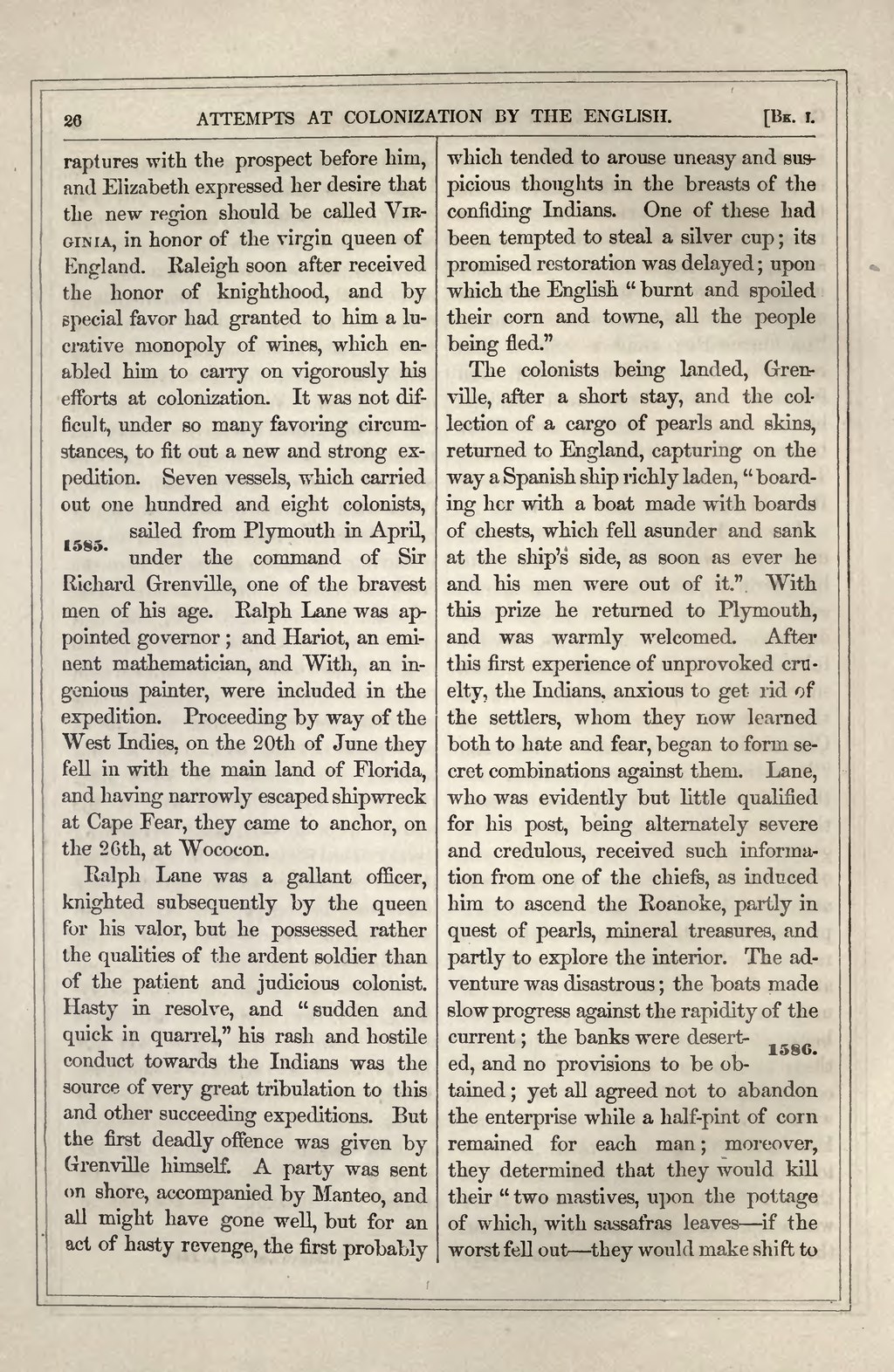raptures with the prospect before him, and Elizabeth expressed her desire that the new region should be called Virginia, in honor of the virgin, queen of England. Raleigh soon after received the honor of knighthood, and by special favor had granted to him a lucrative monopoly of wines, which enabled him to carry on vigorously his efforts at colonization. It was not difficult, under so many favoring circumstances, to fit out a new and strong expedition. Seven vessels, which carried out one hundred and eight colonists, sailed from Plymouth in April, under the command of Sir Richard Grenville, one of the bravest men of his age. Ralph Lane was appointed governor; and Hariot, an eminent mathematician, and With, an ingenious painter, were included in the expedition. Proceeding by way of the West Indies, on the 20th of June they fell in with the main land of Florida, and having narrowly escaped shipwreck at Cape Fear, they came to anchor, on the 26th, at Wococon.
Ralph Lane was a gallant officer, knighted subsequently by the queen for his valor, but he possessed rather the qualities of the ardent soldier than of the patient and judicious colonist. Hasty in resolve, and "sudden and quick in quarrel," his rash and hostile conduct towards the Indians was the source of very great tribulation to this and other succeeding expeditions. But the first deadly offence was given by Grenville himself. A party was sent on shore, accompanied by Manteo, and all might have gone well, but for an act of hasty revenge, the first probably which tended to arouse uneasy and suspicious thoughts in the breasts of the confiding Indians. One of these had been tempted to steal a silver cup; its promised restoration was delayed; upon which the English " burnt and spoiled their corn and towne, all the people being fled."
The colonists being landed, Grenville, after a short stay, and the collection of a cargo of pearls and skins, returned to England, capturing on the way a Spanish ship richly laden, "boarding her with a boat made with boards of chests, which fell asunder and sank at the ship's side, as soon as ever he and his men were out of it." With this prize he returned to Plymouth, and was warmly welcomed. After this first experience of unprovoked cruelty, the Indians, anxious to get rid of the settlers, whom they now learned both to hate and fear, began to form secret combinations against them. Lane, who was evidently but little qualified for his post, being alternately severe and credulous, received such information from one of the chiefs, as induced him to ascend the Roanoke, partly in quest of pearls, mineral treasures, and partly to explore the interior. The adventure was disastrous; the boats made slow progress against the rapidity of the current; the banks were deserted, and no provisions to be obtained; yet all agreed not to abandon the enterprise while a half-pint of corn remained for each man; moreover, they determined that they would kill their "two mastives, upon the pottage of which, with sassafras leaves—if the worst fell out—they would make shift to
